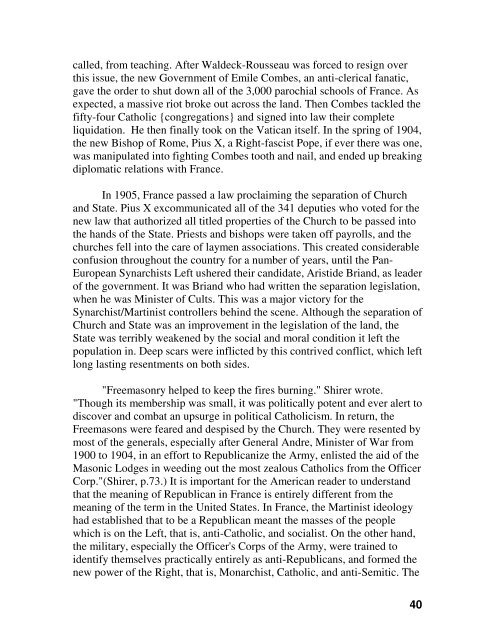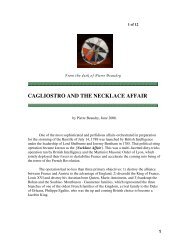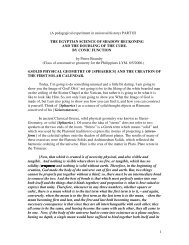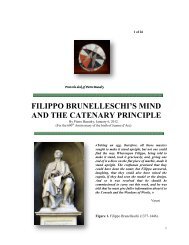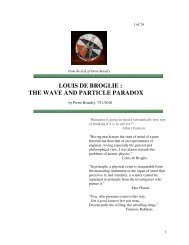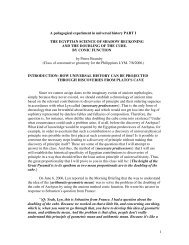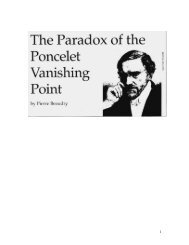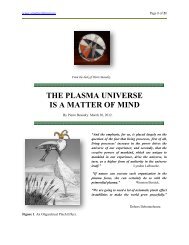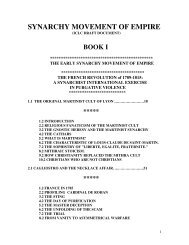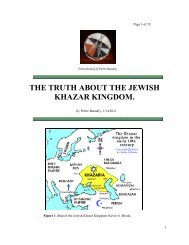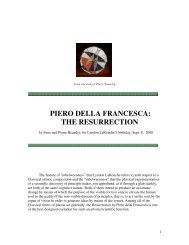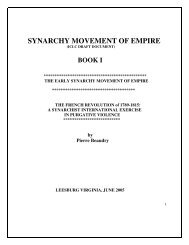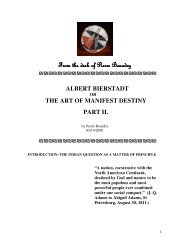synarchy movement of empire book ii - Pierre Beaudry's Galactic ...
synarchy movement of empire book ii - Pierre Beaudry's Galactic ...
synarchy movement of empire book ii - Pierre Beaudry's Galactic ...
You also want an ePaper? Increase the reach of your titles
YUMPU automatically turns print PDFs into web optimized ePapers that Google loves.
called, from teaching. After Waldeck-Rousseau was forced to resign over<br />
this issue, the new Government <strong>of</strong> Emile Combes, an anti-clerical fanatic,<br />
gave the order to shut down all <strong>of</strong> the 3,000 parochial schools <strong>of</strong> France. As<br />
expected, a massive riot broke out across the land. Then Combes tackled the<br />
fifty-four Catholic {congregations} and signed into law their complete<br />
liquidation. He then finally took on the Vatican itself. In the spring <strong>of</strong> 1904,<br />
the new Bishop <strong>of</strong> Rome, Pius X, a Right-fascist Pope, if ever there was one,<br />
was manipulated into fighting Combes tooth and nail, and ended up breaking<br />
diplomatic relations with France.<br />
In 1905, France passed a law proclaiming the separation <strong>of</strong> Church<br />
and State. Pius X excommunicated all <strong>of</strong> the 341 deputies who voted for the<br />
new law that authorized all titled properties <strong>of</strong> the Church to be passed into<br />
the hands <strong>of</strong> the State. Priests and bishops were taken <strong>of</strong>f payrolls, and the<br />
churches fell into the care <strong>of</strong> laymen associations. This created considerable<br />
confusion throughout the country for a number <strong>of</strong> years, until the Pan-<br />
European Synarchists Left ushered their candidate, Aristide Briand, as leader<br />
<strong>of</strong> the government. It was Briand who had written the separation legislation,<br />
when he was Minister <strong>of</strong> Cults. This was a major victory for the<br />
Synarchist/Martinist controllers behind the scene. Although the separation <strong>of</strong><br />
Church and State was an improvement in the legislation <strong>of</strong> the land, the<br />
State was terribly weakened by the social and moral condition it left the<br />
population in. Deep scars were inflicted by this contrived conflict, which left<br />
long lasting resentments on both sides.<br />
"Freemasonry helped to keep the fires burning." Shirer wrote.<br />
"Though its membership was small, it was politically potent and ever alert to<br />
discover and combat an upsurge in political Catholicism. In return, the<br />
Freemasons were feared and despised by the Church. They were resented by<br />
most <strong>of</strong> the generals, especially after General Andre, Minister <strong>of</strong> War from<br />
1900 to 1904, in an effort to Republicanize the Army, enlisted the aid <strong>of</strong> the<br />
Masonic Lodges in weeding out the most zealous Catholics from the Officer<br />
Corp."(Shirer, p.73.) It is important for the American reader to understand<br />
that the meaning <strong>of</strong> Republican in France is entirely different from the<br />
meaning <strong>of</strong> the term in the United States. In France, the Martinist ideology<br />
had established that to be a Republican meant the masses <strong>of</strong> the people<br />
which is on the Left, that is, anti-Catholic, and socialist. On the other hand,<br />
the military, especially the Officer's Corps <strong>of</strong> the Army, were trained to<br />
identify themselves practically entirely as anti-Republicans, and formed the<br />
new power <strong>of</strong> the Right, that is, Monarchist, Catholic, and anti-Semitic. The<br />
40


